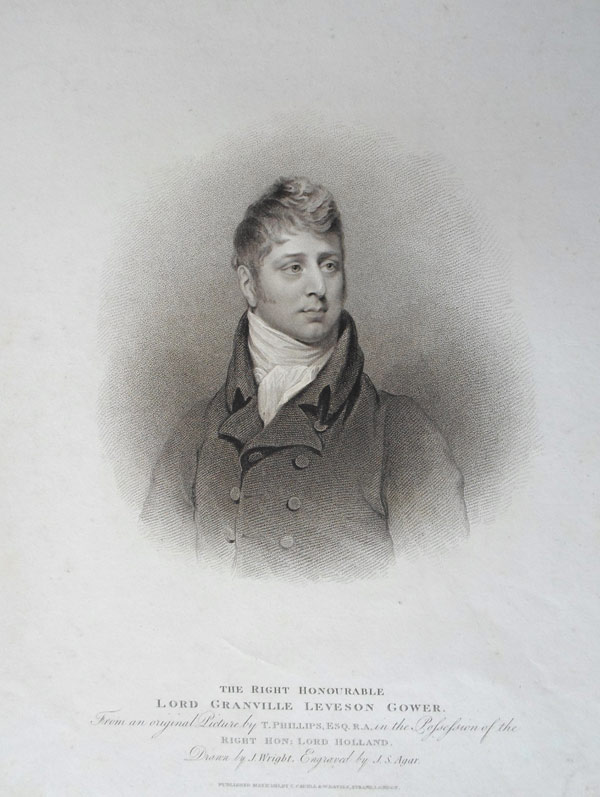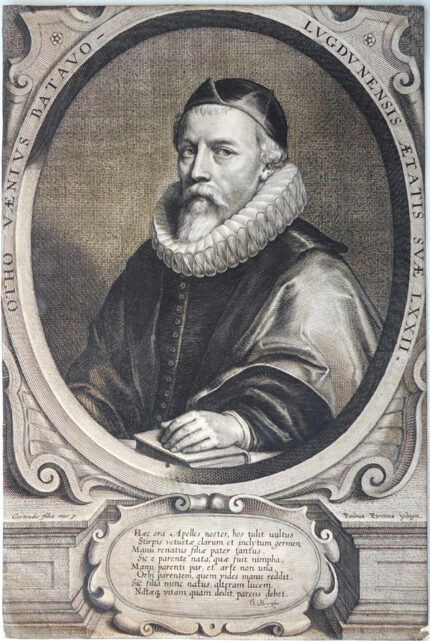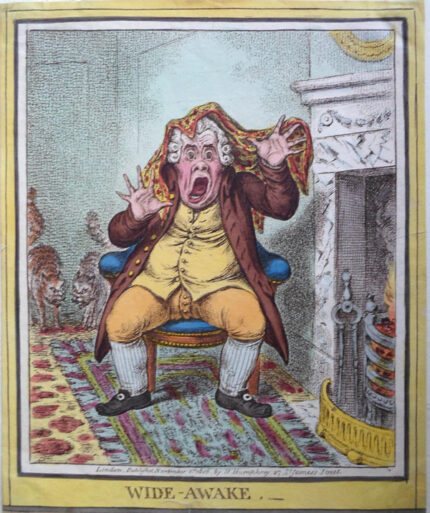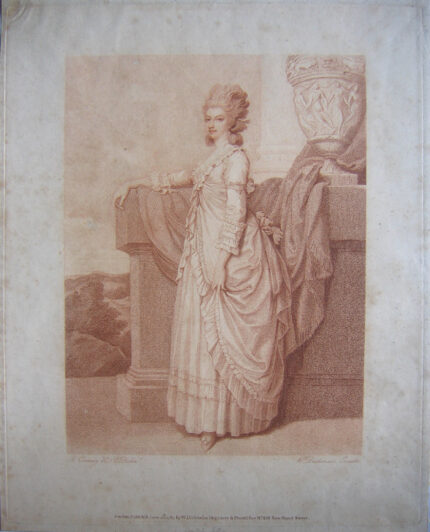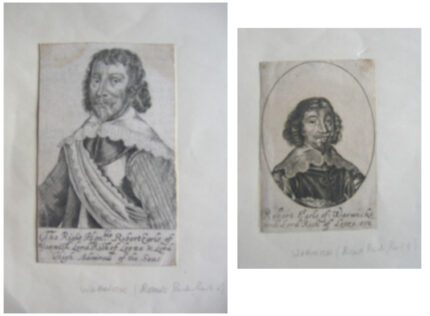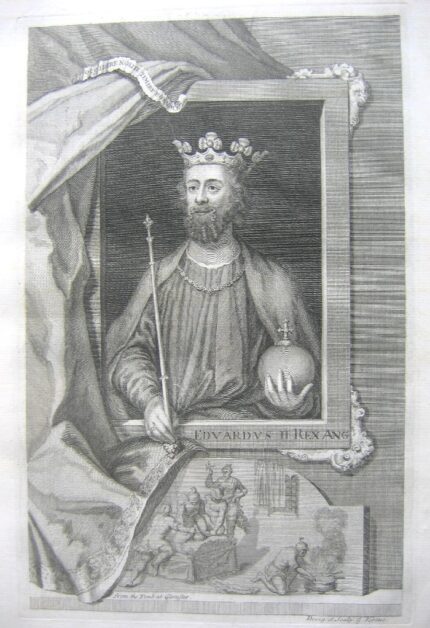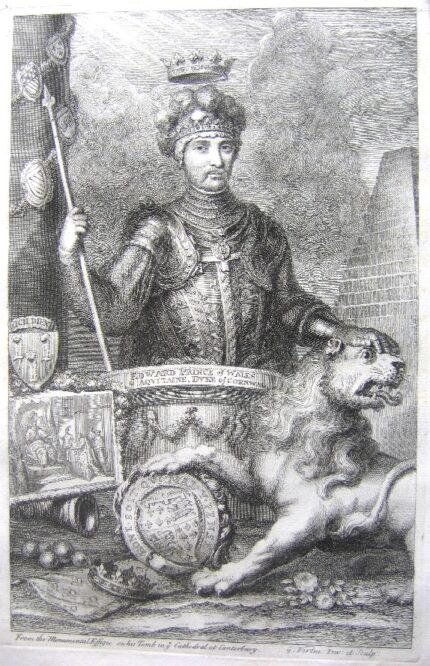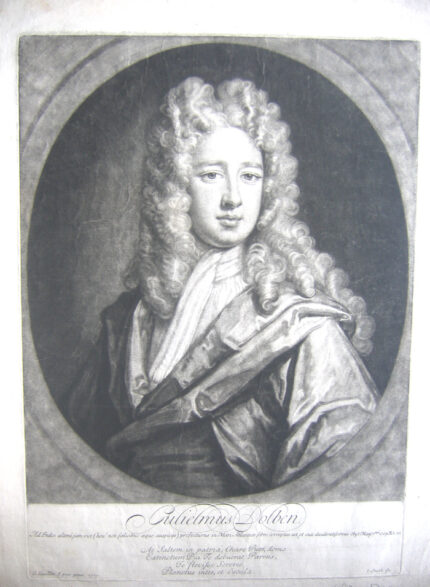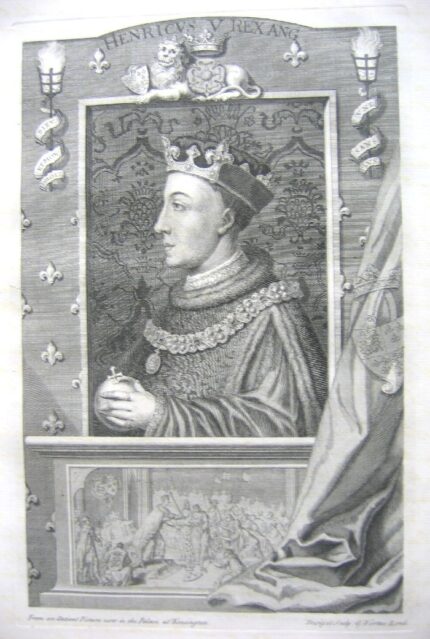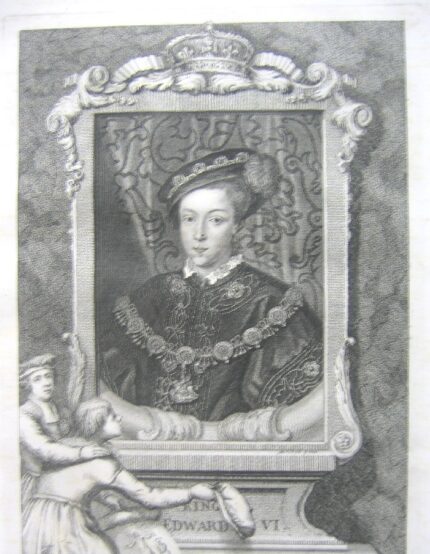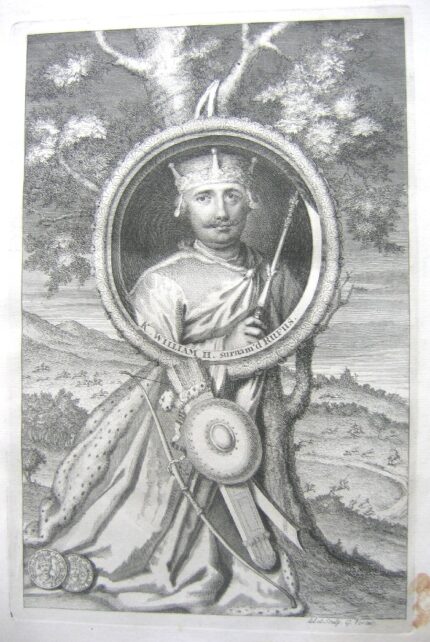Lord Granville Leveson Gower
£75.00
J S Agar after J WrightLord Granville Leveson GowerLolndon, May 17th. 1813Stipple engraving380 x 280 mm
J S Agar after J Wright
Lord Granville Leveson Gower
Lolndon, May 17th. 1813
Stipple engraving
380 x 280 mm
£75
Lord Granville Leveson-Gower, diplomat, was born on 12 October 1773. He was the third and youngest son of Granville, first marquis of Stafford by his third wife, Lady Susannah Stewart, second daughter of Alexander, sixth earl of Galloway. Granville was said to have been the most handsome man in Regency England. Though Granville served in the House of Commons, his most distinguished service came through the diplomatic corps, his highest post being ambassador to France. On 19 July 1804 he was appointed ambassador extraordinary at St. Petersburg. He concluded a treaty, which, however, proved practically inoperative, and in 1805 returned to England. It was Lord Leveson-Gower that Bellingham, the assassin of Perceval in 1812, had intended to kill in revenge for some fancied ill-treatment in Russia.. In 1815 he was created Viscount Granville, and subsequently became minister at Brussels. He received the grand cross of the Bath, and was invested with it by the king of France at the Tuileries on 9 June 1825. In 1827 he was recalled, but Earl Grey, when he became prime minister, reappointed him, and he continued to be ambassador at Paris, with a short interval in 1834, until the fall of Lord Melbourne’s administration in 1841. He was in early life a follower of Pitt and Canning, but in 1832 was a staunch whig, and came over from Paris to vote for the Reform Bill

